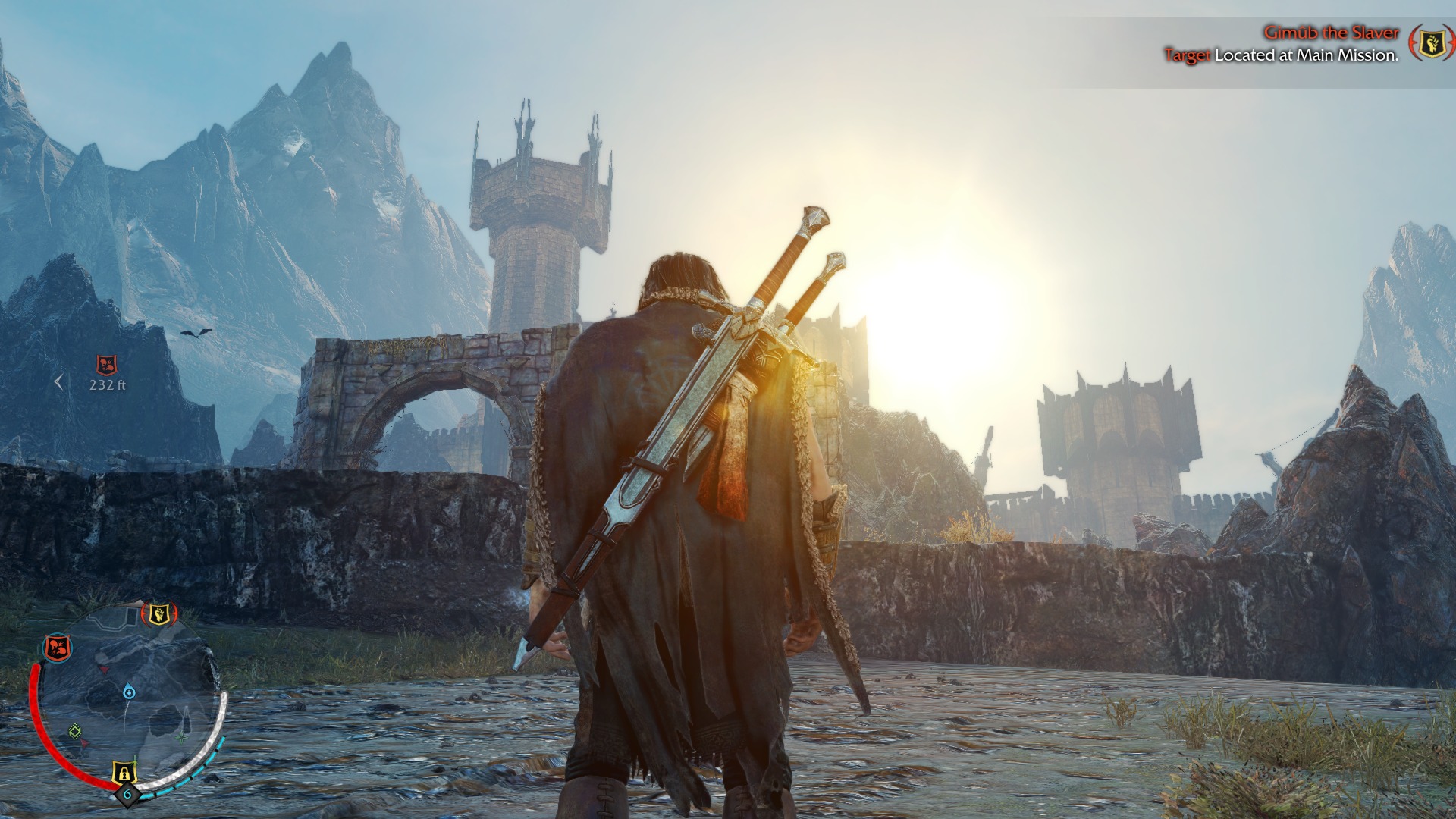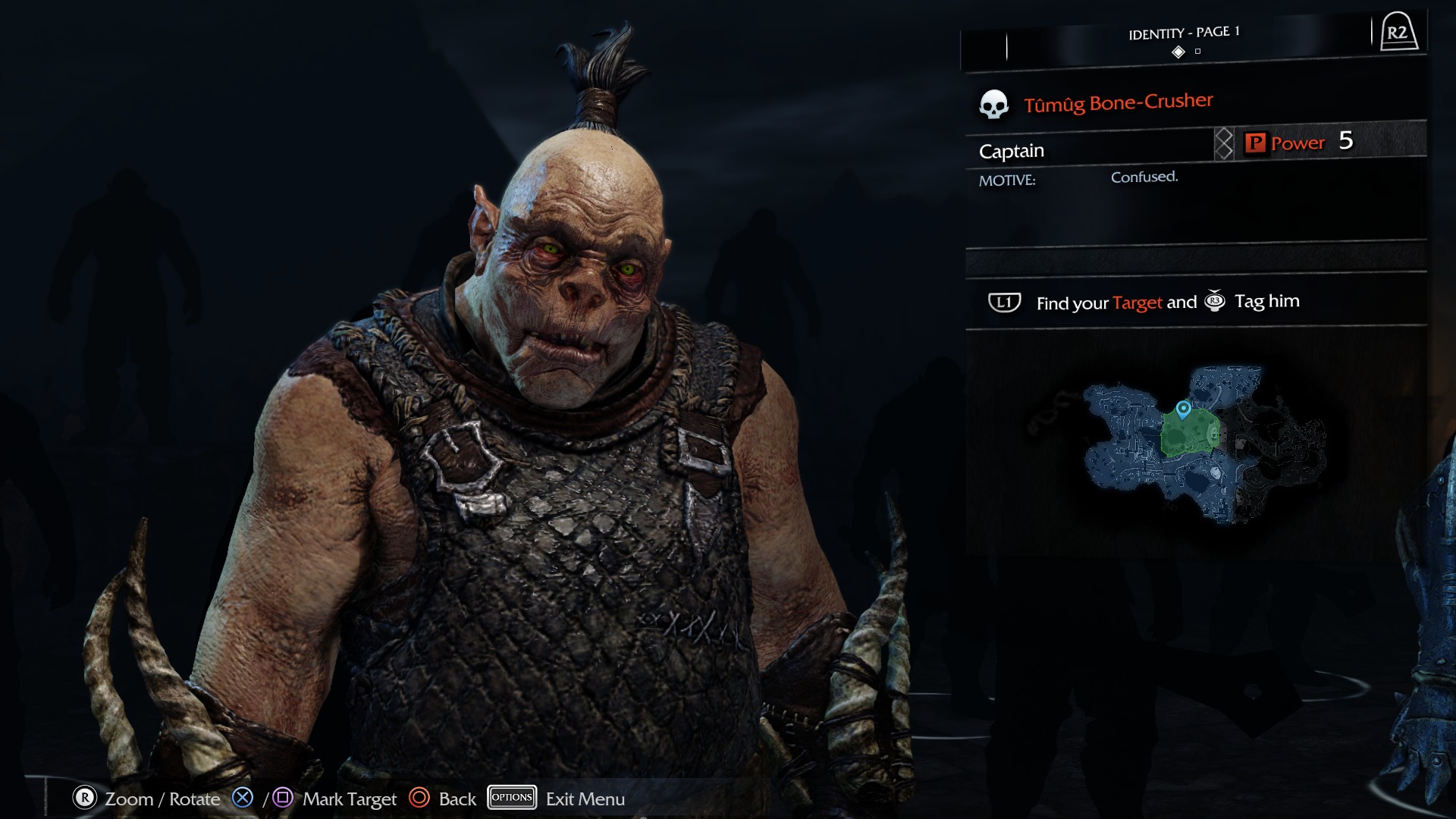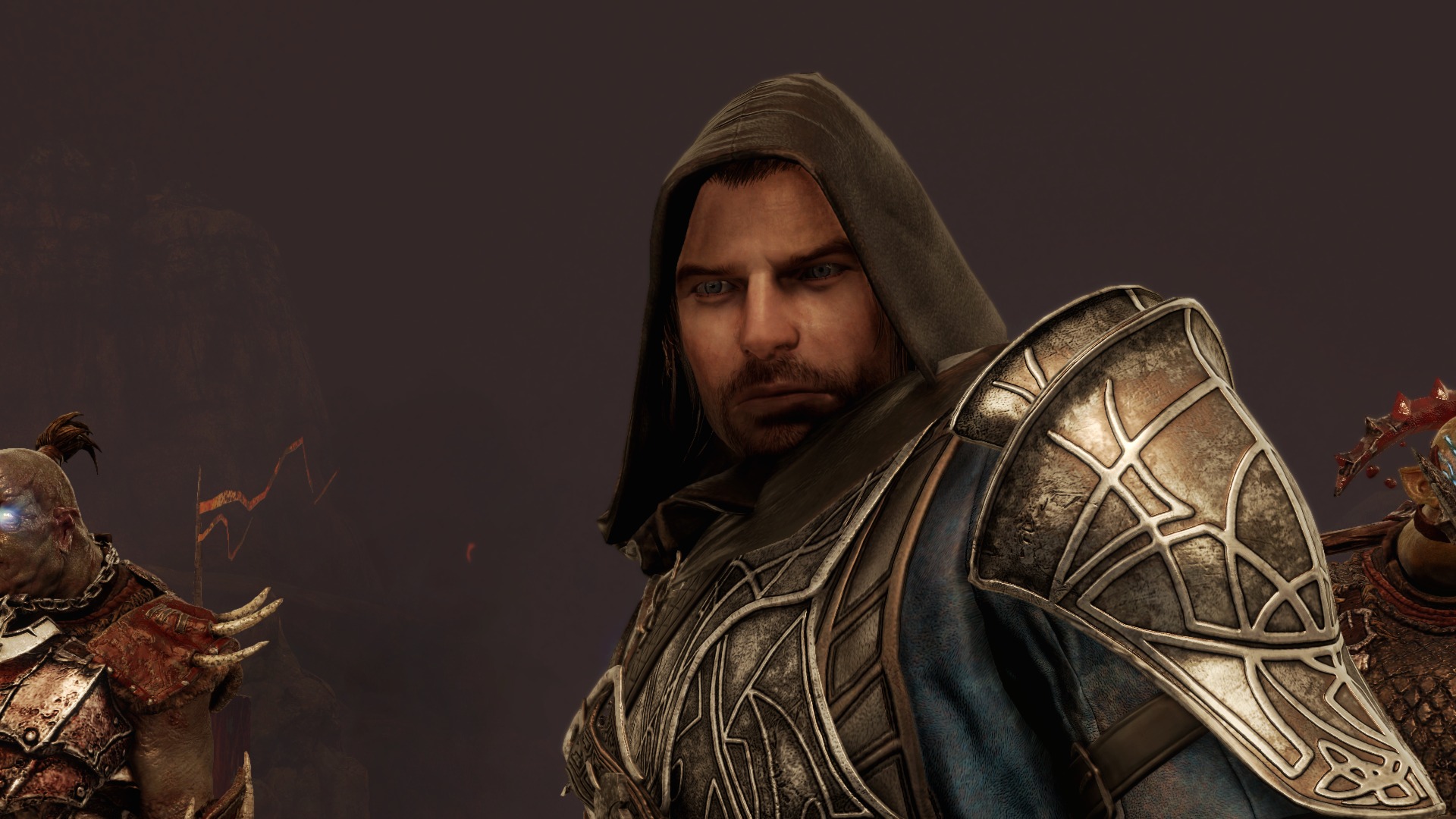
Licensed games have had a rocky relationship with the industry, that is, up until recently. They come from a time in gaming when marketers thought throwing a license on a product would sell it. And while that much has largely been proven true when the sales data rolls in, it doesn’t always bode well for the quality of the game. In fact, it is rare when it does.
Last generation we saw a jump in quality for licensed games when the Batman Arkham series shook the industry to it’s core, proving that in spite of many failures throughout the years, movie, comic book, and TV show properties can be adapted to video games well when developers and publishers invest themselves in the IP. WB Games understood this when they made Arkham Asylum, and Middle-Earth: Shadow of Mordor is proof that lightning can strike twice.
"Middle-Earth: Shadow of Mordor is proof that lightning can strike twice. "
In Middle-Earth: Shadow of Mordor you’ll play as Talion, a Gondorian Ranger who is killed moments into the game. Due to possession by an Elvin Wraith, he is “banished from death.” Taking up the mantle of Gravewalker, Talion and the Wraith set out to avenge the killing of his family by the Black Hand of Sauron. To do this, Talion must make his way through the ranks of the Dark Army, and destroy it one beheading at a time.
You’ll traverse through the game on foot and eventually gain the ability to ride animals. I never felt this was necessary as the two hub areas in the game aren’t very large and you can unlock fast travel points at ruined towers on the map. Unfortunately, there is little reason not to use these as much as possible because the environments are bland and uninteresting. And yes, I know that is largely the point of Mordor, but with as much creative license they have taken with the lore (completely retconning it in spots), I feel that they could have done better.
Combat makes up the majority of this game, so it’s good that the combat system is fantastic. Borrowing heavily from the Arkham formula, the game’s combat focuses on timed counters, combo chains, and positioning. Battles are engaging and require your full attention as Talion can’t take very many hits, especially from higher level foes. Learning to counter and evade blows will become an essential skill to successfully resolve conflicts.
"Learning to counter and evade blows will become an essential skill to successfully resolve conflicts."
Using stealth to your advantage before encounters can change the course of the battle that follows. You will want to eliminate as many enemies from the area as possible before initiating conflict. Later on, you will gain the ability to stealthily “brand” Uruks to fight for you when commanded, which will become necessary in late game objectives. Ultimately you can choose between using stealth to even the playing field, or just rushing in like a mad man. I wouldn’t suggest doing the latter if at all possible, especially in stronghold areas where the enemies can easily call powerful reinforcements.
Its rare that a game does stealth gameplay correctly, but Monolith really seems to know what they are doing. The game nails it by giving the player all the right options and abilities to truly become the shadow Uruks fear. I love stealth games; I like feeling like a knife in the dark while clearing areas. So when I play a game that gets it wrong, it’s very frustrating to me. Most of the time these games feel like the mechanics are getting in the way of what you want to accomplish. Shadow of Mordor doesn’t suffer from this problem. I never felt when I failed in a stealth segment that it was the game’s fault, which is a testament to how refined the stealth gameplay is.
You can upgrade your abilities and attributes by gaining experience points and collecting “Mirian”, the in-game currency, from collectibles and monuments. The game is flexible with how you can spend them, and no playstyle seems to be “wrong.” It all comes down to personal preference so if you tend to focus heavily on stealth for your approaches there are ample options to choose from. Along with this, you can augment your weapons with different runes that Captains drop when defeated. These drops are random, but more powerful runes can be gotten from Captains and Warchiefs by sending a death threat to them before your confrontation.
"I never felt when I failed in a stealth segment that it was the game’s fault, which is a testament to how refined the stealth gameplay is."
Shadow of Mordor’s story is pretty bad. Predictable revelations about your Elf Lord companion, characters that are introduced for 2-3 missions and then thrown away, a forced appearance by Gollum, and a rushed, anticlimactic ending are just a few of it’s problems. It wasn’t really a big deal to me because I’m not a huge fan of the The Lord of the Rings, but I could see it putting a damper on fan’s expectations. That said, I think the nemesis system fills this gap nicely.
You see, Shadow of Mordor isn’t really a game about The Lord of the Rings lore, it’s a game about the dynamic rivalries built between the player and the Uruk hierarchy. These relationships will shape your playthrough, and the playthroughs of people on your friends list (I’ll get into this later). You’ll come to know certain Uruks by name, and avoid situations where they are around. Be prepared to plan carefully in order to eliminate them, or ultimately, make them your minions. You won’t be able to take control and give orders to Uruks until around the halfway point in the game, but once you can it is as easy as grabbing them and using the “dominate” ability.
"Shadow of Mordor isn’t really a game about The Lord of the Rings lore, it's a game about the dynamic rivalries built between the player and the Uruk hierarchy."
Throughout the game you will be tasked with finding and confronting two types of Uruks in the hierarchy of Sauron’s Army, Captains and Warchiefs. Captains wander the world with groups of followers and can be randomly encountered during traversal. Sometimes they will be engaged in instanced activities that you can choose to infiltrate and disrupt. For example, if a captain is having a power-struggle with a rival captain you can choose to intervene and kill the stronger one of the two in order to put a weaker Uruk in a position of power. This helps by ensuring Warchiefs have weak Captains that they take into battle with them when you do decide to confront them.
You can and will be killed numerous times by these Captains, especially when 2 or more are traveling near one another. This doesn’t end the game though, as the Uruk who killed you will be promoted and become stronger. If it is an unnamed Uruk soldier who kills you he will instantly be made a captain, and if it is a captain who kills you he will be promoted to Warchief as long as there is an available opening. Dying will only result in a fail state when you fall in a mission, otherwise it is a vital part of experiencing the game and testing the limits of the nemesis system.
Players on your friends list will also affect the course of your playthrough, and you theirs. Whenever they are killed by a captain, you will have the option of doing a Vendetta mission to avenge them. If you fail the mission, the captain’s strength increases and he becomes part of your game. This kind of persistent online activity adds a strange sense of community to an otherwise single-player game.
"You can and will be killed numerous times by these Captains, especially when 2 or more are traveling near one another. "
As you can see, the nemesis system is the star of the show. I can honestly say that without it, the game wouldn’t have much else to stand on. Its clear that Monolith spent a lot of time designing and testing their advanced AI. Unfortunately for Playstation 3 and Xbox 360 players, the system won’t fully be there in those versions. It is unknown to what extent nemesis will be downgraded, but I would recommend playing on a current generation platform instead if at all possible.
The bottom line here is that if you have a passing interest in Tolkien’s work, and you liked the Arkham or Assassin’s Creed games, then you owe it to yourself to give Shadow of Mordor a shot. As for avid fans of Tolkien, the retconning of certain pieces of lore might upset you but this is hardly the first time a Lord of the Rings game has done that, and at least the “game” part is actually good this time. Just don’t go in expecting a story on the scale of The Lord of the Rings or detailed environments, they just aren’t there.
This game was reviewed on the Playstation 4.
Intuitive combat and stealth mechanics, Nemesis system builds a relationship between the player and enemies like never before, Vendetta missions cultivate a community and make for good “watercooler” moments.
Main story is mediocre and forgettable, Areas feel empty and drab (I know it's Mordor, but still).





















